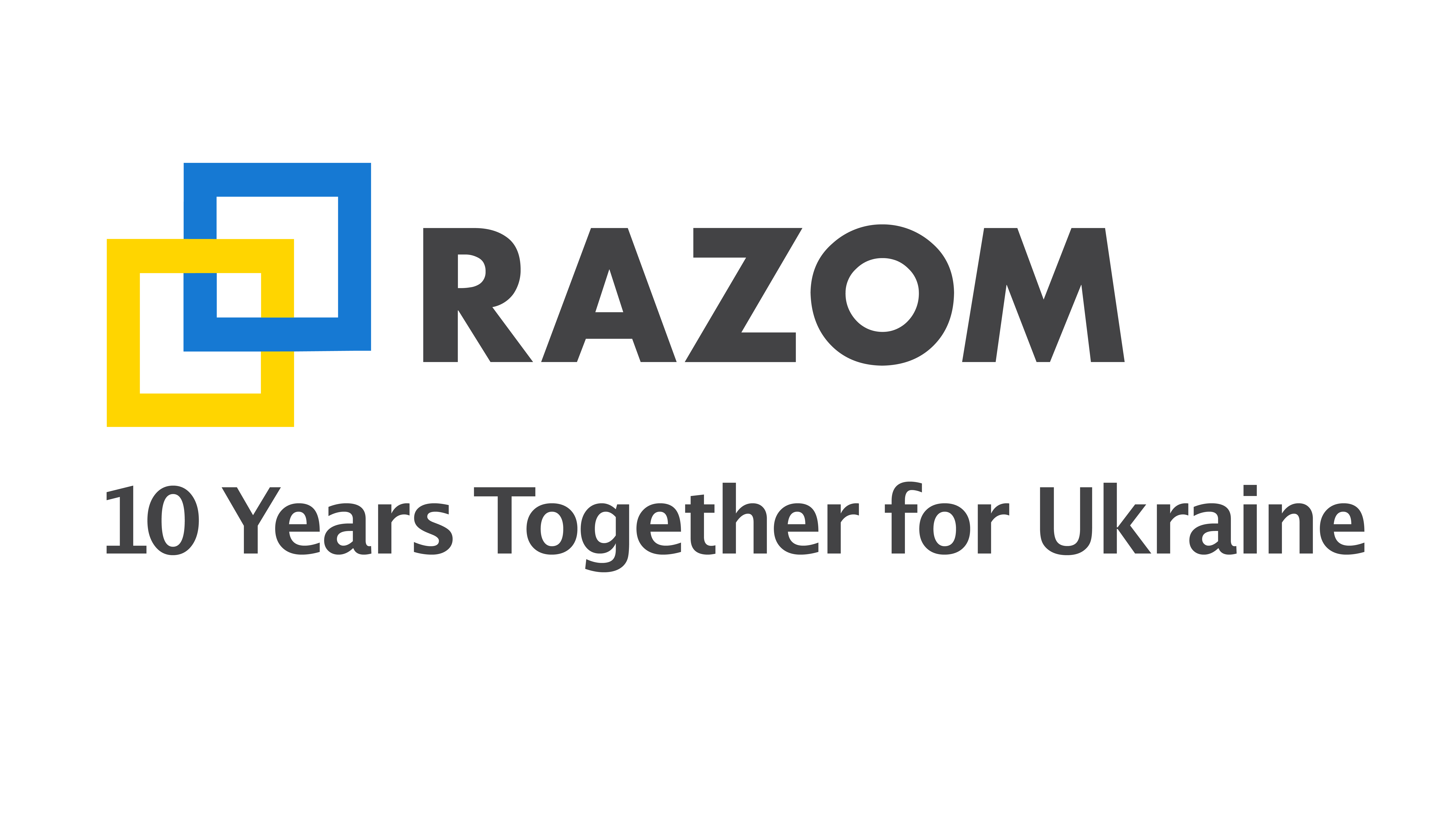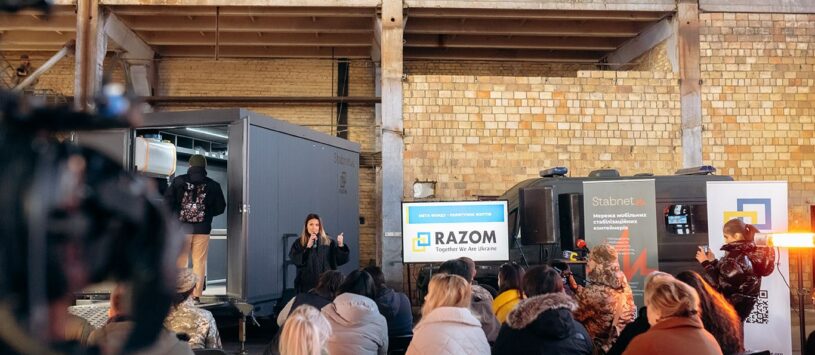The mobile stabilization container, Stabnet, aims to help save severely wounded individuals on the front lines. Medical brigades estimate that 50% of those wounded cannot be saved due to delayed evacuation and lack of proper facilities. Stabnet aims to provide frontline medical assistance by offering a compact, autonomous solution.
“The idea arose during volunteer trips providing ambulances and equipment,” said French volunteer Damien Arri-Maren. “The design borrows from existing mobile units and can be quickly delivered by a pickup truck, saving crucial time.”
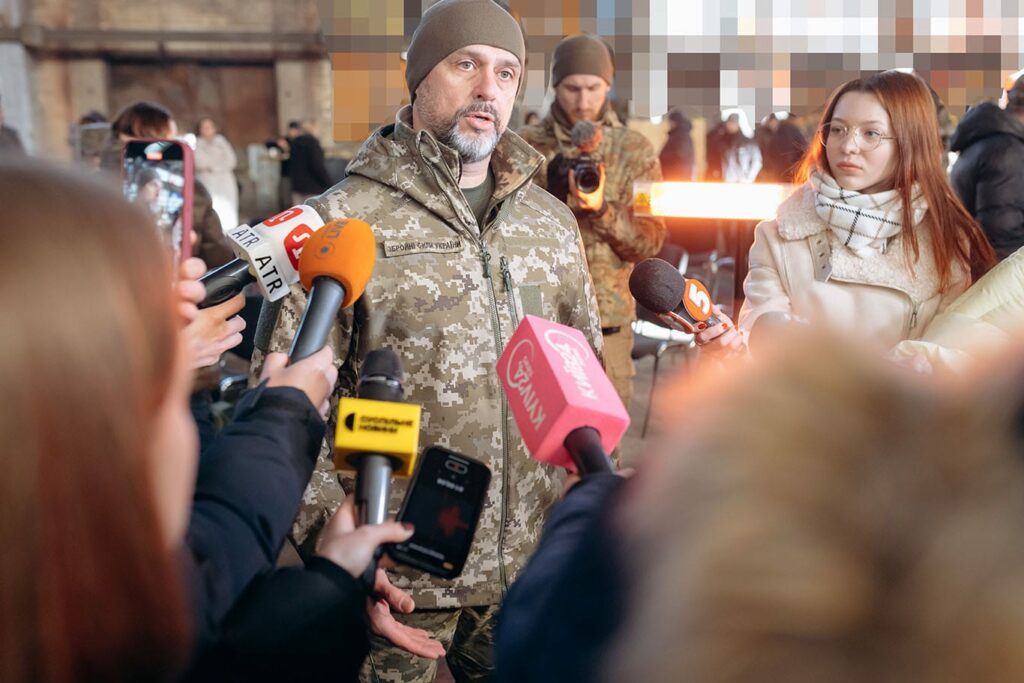
“Our goal is to offer swift aid,” Evelina Kurilets, Executive Director of Razom in Ukraine, shared. Colonel Oleksandr Tomak added that our heroes often receive care in unsuitable conditions, highlighting the need for a network of these containers.
“Distance between the battlefield and stabilization points is significant, leading to longer evacuation times and, unfortunately, preventable losses,” Tomak noted. “Prompt and proper care can also reduce amputations from infections.”
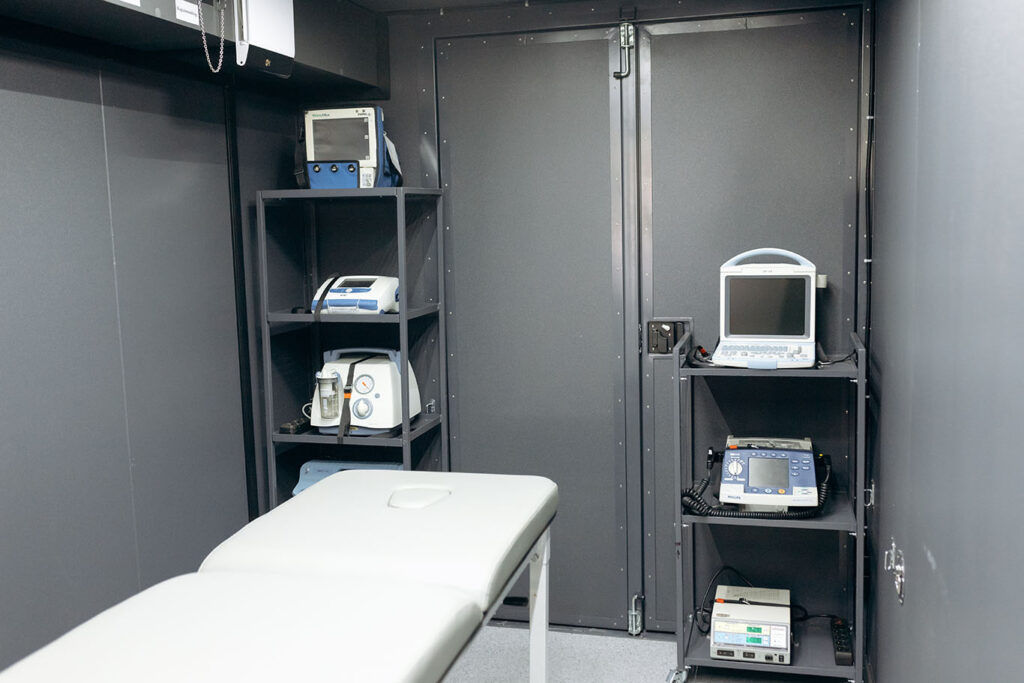
The first pilot container was supported by Razom. Developers consulted with medical brigades during development. The container offers autonomous operation through water tanks and generators and features a full suite of essential medical equipment for emergency stabilization.
“We have equipment for oxygenation, intubation, ventilation, defibrillation, vital signs monitoring, ultrasounds, and bleeding control,” explained surgeon Captain Lyudmila Sakali. “Additionally, there’s a sterilizer, sink, and refrigerator for medicines and blood products.”
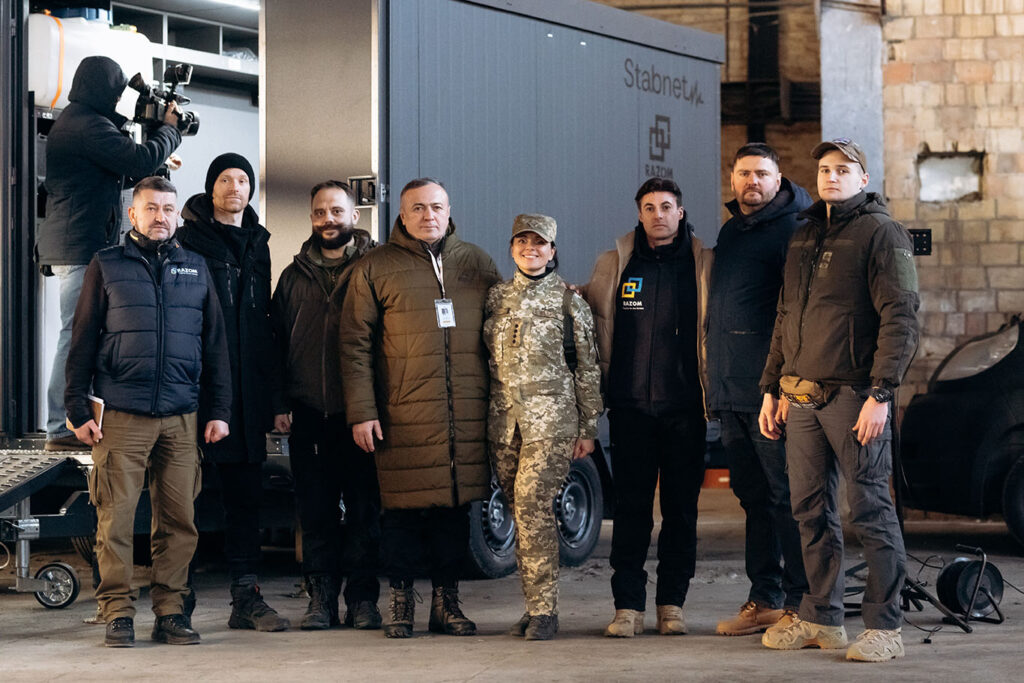
After testing in real combat conditions, the container will return for adjustments and further development. The goal is to create a network of 100 Stabnet units across the front line, effectively addressing the issue of losing wounded heroes during evacuation.
We invite you to learn more and support Razom’s Heroes Program!
